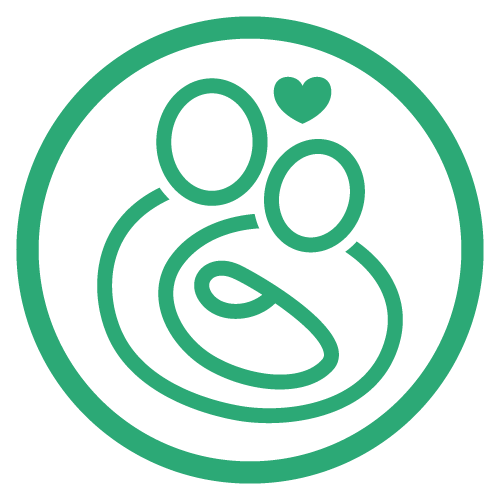 Perinatal Mood and Anxiety Disorders Online Course(s) & Continuing Education
Perinatal Mood and Anxiety Disorders Online Course(s) & Continuing Education
Access the latest clinical skills and research for Perinatal Mood and Anxiety Disorders for PERINATAL MENTAL HEALTH professional training. These Perinatal Mood and Anxiety Disorders online courses provide practice-changing skills and valuable perspectives from leading global experts. This Perinatal Mood and Anxiety Disorders education has been accredited for a variety of CEUs / CERPs and can be accessed on-demand, at your own pace.

"But You're Supposed to Be Happy!" Perinatal Mood and Anxiety Disorders

Marie Zahorick, MS, APRN, PMHNP-BC, FNP-C, IBCLC became a La Leche League Leader in 1999 and an IBCLC in 2005. After several years of working as a hospital-based bilingual Spanish-speaking IBCLC, she attended nursing school and eventually became a board-certified Family Nurse Practitioner. In the meantime, she continued working as a hospital-based lactation consultant doing inpatient, outpatient, and NICU lactation. She did not get much sleep.
After graduate school, Marie went to work in psychiatry and also did a post-masters certificate to became board-certified in psychiatry and mental health. She was fellowship-trained to manage patients in the acute inpatient setting, partial hospitalization, outpatient office, and OB patients in the general hospital setting.
She specializes in women's psychiatry, especially medical management of women who are pregnant or lactating. Her expertise also includes general psychopharmacology. She is experienced at diagnosing and treating mental conditions such as bipolar disorder, perinatal/postpartum mood and anxiety disorders, postpartum psychosis, obsessive-compulsive disorder, premenstrual and perimenopausal mood disorders, and personality disorders.
She lives in the Chicago area with her husband and three adult children in their 20s. Her children all breastfed for at least two years but now just make faces when confronted with that embarrassing fact.
Topic: Medications and Mothers' Minds: Psychopharmacology for Lactating Mothers - [View Abstract]
Perinatal mood and anxiety disorders (PMADs) include a spectrum of commonly-occuring mental health disorders. About 17% of postpartum mothers worldwide experience depression, with rates climbing to 60% in some low social-economic status women and adolescent mothers.
However, less well-known PMADs include perinatal panic disorder, perinatal obsessive-compulsive disorder (OCD), and perinatal post-traumatic stress disorder (PTSD). These often include very distressing intrusive or bizarre thoughts, behaviors, or flashbacks.
Perinatal bipolar disorder and postpartum psychosis are particularly dangerous due to severe depression, and reckless or bizarre behavior that can endanger mother and baby.
Women with bipolar disorder may have stopped medications during pregnancy and are experiencing mood instability. They may also not realize they have bipolar disorder and require careful diagnosis, since twenty-two percent of depressed women postpartum have bipolar depression. Postpartum psychosis is an emergency and occurs in 1 to 2 of every 1,000 deliveries. This requires immediate hospitalization for safety, due to a 5% suicide rate and 4% infanticide rate. The midwife is part of the safety net for postpartum mothers and is a vital first step for identifying possible PMADs and referring the mother for mental health treatment and support.

Anxiety and Related Disorders During Pregnancy and Postpartum

Dr. Melanie Badali is a Registered Psychologist in British Columbia, Canada with over 20 years of experience working as a clinician, researcher, and instructor in the field of clinical psychology.
Dr. Badali currently provides psychological assessment and treatment services at the North Shore Stress and Anxiety Clinic, where she is on the Perinatal Services Team. She is certified in the practice of Cognitive Behaviour Therapy (CBT) by the Canadian Association of Cognitive and Behavioural Therapies and works with the organization to advance training, knowledge and accreditation in CBT. She has experience working in a variety of clinical settings including inpatient and outpatient, public and private.
She is also an Associate Faculty member at Yorkville University, where she teaches in the Master's of Counselling Psychology Program.
As a Board Director for Anxiety Canada, a non-profit organization that increases awareness, promotes education and provides resources for people dealing with anxiety, her role includes advocacy, research, knowledge translation and speaking to the media.
Dr. Badali is actively involved in research, training and writing. She enjoys creating psychoeducational resources such as the Canadian Psychological Association’s new factsheet on Perinatal Anxiety and is currently working on the third edition of the book, “Match Made on Earth”.
The perinatal period is a time of great transition and uncertainty. It is normal for women to experience increased stress and anxiety as they adjust to changes in their body and life. But experiencing anxiety is not the same as having an anxiety disorder. Anxiety disorders are associated with intense distress and significant impairment in functioning (which can include problems caring for self and baby). Anxiety Disorders are estimated to occur in 9% to 22% of women during pregnancy and 11% to 21% of women postpartum. The good news is that Anxiety Disorders are treatable. Psychotherapies such as Cognitive Behavioural Therapy (CBT) are effective and have no known contraindications for pregnant and breastfeeding women. The goal of this presentation is to help front line health care professionals recognize problematic anxiety during the perinatal period and identify evidence-based interventions.

Breastfeeding and Perinatal Mood Disorders: Circuits and Circumstances

Dr. Maria Enrica Bettinelli is Lecturer of Pediatrics, University of Milan, Italy School of Medicine. As IBCLC since 2003, her research focuses on how overcoming barriers to implement breastfeeding support in the community and to promote mother and babies well-being in the perinatal period and the first years of life, adopting nurturing care approach. She has authored peer-reviewed publications on baby friendly community, breastfeeding rates in Lombardy, and the maternal and child health effects of lactation.
Her current research includes the clinical management of breastfeeding difficulties and how emotional experiences impact on breastfeeding decision. As Director of Milan Breastfeeding Network in Milan, Dr. Bettinelli leads an interdisciplinary team of clinicians, nurses and midwives that is developing new approaches to management of breastfeeding difficulties and to sharing breastfeeding education. Dr. Bettinelli is a member of the Italian Society of Pediatrics and Italian Society of Neonatology, chairs the Task Group of Education and Conference 2020 of ELACTA Board 2018-2020 and is a member of the ELACTA Board 2018-2020, and since 2012 is a member of the Academy of Breastfeeding Medicine.
Dr. Bettinelli attended University of Milan School of Medicine where she graduated with her M.D. in 1986. She completed her Residency in Pediatrics in 1989 and in Neonatology in 1991 at University of Milan and went on to complete her medical experience at Mangiagalli Hospital in Milan. Dr. Bettinelli obtained her MSc in Perinatal Mental Health in 2019.
She lives in Milan, Italy with her husband and her daughter.
Breastfeeding, attachment, and perinatal mental disorders share the same neurobiological circuits and neurosciences have shown there are connections acting both in a protective and negative sense. Relational experiences in the early years of life put the basis for future physical and mental health. Avoiding early toxic stress is essential in preventing mental problems later. Maternal depression, and in general perinatal mental disorders of parental figures, especially of the mother, have a well-documented negative effect on infants and children, altering the mechanism of responsive interaction. Depressed mothers do not engage with their children and fail to respond to their signals. Children find this situation stressful, and there may be permanent effects arising from being raised by chronically depressed parents.
According to recent studies, breastfeeding helps reduce early toxic stress, as well as allowing optimal nutrition. The responsive interaction mode is the basis of the relationship established with breastfeeding. So breastfeeding has a significant impact on the mental health of children and adolescents. The way mothers respond to their children's needs is the key to understanding these long-term effects. When mothers respond consistently to the signals of their children, they lay the foundations for the resilience of their children. By understanding that the success of breastfeeding is linked to perinatal maternal mental health, we can create awareness when counseling the breastfeeding mother.

Does Breastfeeding Protect Maternal Mental Health? The Role of Oxytocin and Stress

Kathleen Kendall-Tackett is a health psychologist and International Board Certified Lactation Consultant, and the Owner and Editor-in-Chief of Praeclarus Press, a small press specializing in women's health. Dr. Kendall-Tackett is Editor-in-Chief of two peer-reviewed journals: Clinical Lactation and Psychological Trauma. She is Fellow of the American Psychological Association in Health and Trauma Psychology and Past President of the APA Division of Trauma Psychology. Dr. Kendall-Tackett specializes in women's-health research including breastfeeding, depression, trauma, and health psychology, and has won many awards for her work including the 2017 President’s Award for Outstanding Service to the Field of Trauma Psychology from the American Psychological Association’s Division of Trauma Psychology. Dr. Kendall-Tackett has authored more than 460 articles or chapters and is author or editor of 38 books.
Topic: Breastfeeding Helps Mothers Overcome the Legacy of Abuse and Adversity: It Makes All the Difference - [View Abstract]
Topic: Burnout, Compassion Fatigue and Self-Care for Members of the Perinatal Team - [View Abstract]
Topic: Burnout, Secondary Trauma, and Moral Injury in Perinatal Care Providers - [View Abstract]
Topic: Does Breastfeeding Protect Maternal Mental Health? The Role of Oxytocin and Stress - [View Abstract]
Topic: Interplay of Oxytocin and Stress Systems: Impact on Breastfeeding and Mental Health - [View Abstract]
Topic: Lessons to Learn from Fed Is Best: How Can We Improve Our Care? - [View Abstract]
Topic: Mother-Infant Sleep Location: It's Not as Simple as it Seems - [View Abstract]
Topic: Trauma and Breastfeeding: Working Effectively with Trauma Survivors - [View Abstract]
Topic: What’s New in Postpartum Depression? A Summary of Current Findings - [View Abstract]
Depression research contains many conclusions that appear to contradict each other regarding the role of breastfeeding. For example, breastfeeding lowers the risk of depression, but depression increases the risk that breastfeeding will fail. Moreover, breastfeeding problems increase women's risk of depression. These findings are not as contradictory as they may seem. By understanding the underlying physiological mechanism, we can understand these seemingly paradoxical findings. This presentation will describe the link between the stress and oxytocin systems, and how they relate to both maternal mental health and breastfeeding. When the stress system is upregulated, depression and breastfeeding difficulties follow. Conversely, when oxytocin is upregulated, maternal mental health and breastfeeding rates improve. This talk also includes the role of birth interventions and mother-infant sleep, as well as practical strategies that increase oxytocin.

View Details / Enroll

Impact of Paternal and Maternal Postpartum Depression on Parenting Behaviors and Infant/Child Outcomes

Dr. Sheehan Fisher is an Assistant Professor and clinical psychologist at Northwestern University. His research career focuses on the effects of perinatal and subsequent parental mental health on infant/child health outcomes, with a specialization in the emerging field of father mental health. More specifically, he examines: 1) the biopsychosocial risk factors for parental psychopathology, 2) the impact of parental psychopathology on parenting behaviors and the family environment, and 3) the combined effect of the family environment on infant/child medical and emotional health outcomes. His aim is to reconceptualize parental mental health research to integrally involve both mothers and fathers to differentiate the etiology, course, and potential interactivity of paternal and maternal mental health and, in turn, the longitudinal associations with child medical and mental health. Dr. Fisher’s research dovetails with his perinatal clinical practice, including being the clinical director of the Fathers’ Mental Health Specialty Clinic. Ultimately, the goal is for his research plan is to optimize the health and effectiveness of the parental team to positively influence the child health trajectory starting from infancy.
Maternal and paternal depression rates are elevated during the perinatal period compared to the normal population. Historically, fathers were excluded from perinatal mental health research but there is strong evidence that fathers have their own unique experiences that are more recently being considered within research. Mothers and fathers express and report depressive symptoms differently, which may influence detection of depression. Both parents’ mental health has an impact on parenting behaviors and the family functioning, which ultimately have an impact on child health. Perinatal clinical treatment would benefit from a comprehensive examination of the family dynamic to best provide treatment of perinatal depression and improve child health. Fathers can be utilized as an asset to mothers and clinicians to support maternal mental health. Future research is needed to optimize clinical treatment of perinatal mental illness that accounts for the full family dynamic.


Jayashri KULKARNI commenced her appointment as Professor of Psychiatry, The Alfred and Monash University in 2002. She directs a large psychiatric research group, the Monash Alfred Psychiatry Research Centre (MAPrc), with approximately 150 staff and students. The Centre is dedicated to discovering new treatments, new understanding and new services for people with a range of mental illnesses.
Jayashri Kulkarni completed her MBBS degree in 1981 at Monash University and worked mainly in Emergency Medicine before deciding to specialise in Psychiatry. She became a Fellow of the Royal Australian and New Zealand College of Psychiatrists in 1989 and was awarded a PhD from Monash University in 1997 for her thesis “Women and Psychosis”. Jayashri has pioneered the novel use of estrogen as a treatment for schizophrenia and is internationally acknowledged as a leader in the field of reproductive hormones and their impact on mental health. An expert in Women’s Mental Health, Jayashri was elected the President of the International Association of Women’s Mental Health, a role she commenced in 2017.
Women suffering major mental illness such as schizophrenia or bipolar affective disorder face multiple challenges in pregnancy. The need to balance maternal mental health with fetal development is a crucial challenge. The best information available on the safety profile of antipsychotic, antidepressant and other medications is needed, but this is often difficult to access, or is contradictory. This presentation will include data on medication safety as well as associated other management aspects for the woman with special needs due to mental illness. Monitoring and treatment of gestational diabetes, infant drug withdrawal syndromes, and mental health support for the woman will be discussed.

Out of the Blue: Post-Partum Mood Disorders and Breastfeeding

Dianne is an IBCLC, podcaster, author, lactation education manager and has been working with families since 2008. In 2010, Dianne completed her Advanced Lactation Certification and BS In Maternal Child Health/Lactation. In 2013, she completed her MA in Health and Wellness/Lactation. Dianne has worked with thousands of families throughout the years in all areas of their breast/chest feeding journey. Dianne’s skillset has been informed by her broad experiences in WIC, in a hospital setting, in a busy pediatric office, a primary care office, telehealth, and private practice. From the prenatal period through weaning (whenever that may be), she has been a valued source of support and knowledge for families worldwide. Dianne teaches using her real-life experiences and case studies, which sets her apart in the lactation field providing a personalized and realistic experience for her audiences. Dianne’s evolution began as a clinical, patient-centered lactation consultant to a public speaker and educator, where she really shines. Her energy is contagious, and is felt by families, lactation consultants and birth workers alike.
Topic: Epidural Anesthesia and its Impact on Breastfeeding Initiation and Duration - [View Abstract]
Topic: Out of the Blue: Post-Partum Mood Disorders and Breastfeeding - [View Abstract]
Topic: Paying it Forward, Support for the Breastfeeding Mother and Baby - [View Abstract]
Topic: Traumic Life Experiences and how they Affect the Breastfeeding Mother - [View Abstract]
Topic: Unlocking the Power of Proper Latching: Overcoming Challenges and Maximizing Breastfeeding Success - [View Abstract]
It is well known that breastfeeding is beneficial to both mother and baby. What happens if breastfeeding is not well established? Researchers are looking closer to postpartum mood disorders and what influence breastfeeding may have in a new mother's psychological well being.
Postpartum depression has been linked to low breastfeeding rates, as well as lower duration rates. Postpartum depression falls under the diagnosis of "major depressive disorder with peripartum onset during pregnancy or in the weeks following delivery" (Bascom & Napolitano, 2015). It has been estimated that postpartum mood disorders, strike an estimated 10-20% of new mothers (Bascom & Napolitano, 2015). However, it has been argued that this number reflects only those women who have sought help for their symptoms. The probability that more women are affected by postpartum mood disorders is high.
Postpartum mood disorders adversely affect not only the health of the mother, but also the relationship with her partner, interaction with her newborn and infant growth (Yusuff, Tang, Binns, Lee, 2015). There are several predictors that can help determine if a woman is at risk for postpartum mood disorders, including mental health history, social status, and labor and delivery. Researchers have found that when more medical interventions were used during labor, the higher the depressive symptoms for the mother. This presentation will aid personnel working with new families to be aware of the signs and syptoms of postpartum mood disorders and how to preserve the breastfeeding relationship.

View Details / Enroll


Angel Montfort, Psy.D., PMH-C is a licensed clinical psychologist, mother of four, and the founder of the Center for Maternal Mental Health, a therapy practice dedicated to serving women throughout all stages of motherhood. She has always gravitated toward treating women and became passionate about perinatal mental health while working in a Women's Clinic within a hospital setting. At first it was a way to meet the needs of her patients and it quickly led to an understanding of her own postpartum experiences, which deepened her connection to this work.
In her practice, Dr. Montfort addresses concerns such as postpartum depression, postpartum anxiety, birth trauma, perinatal loss, infertility, and adjustment to motherhood.
Dr. Montfort shares educational information on her Instagram account (@drangelmontfort) and her website (www.cfmmh.com) in an effort to validate and uplift moms who are struggling through a time that is expected to be the most joyous. Her expertise in perinatal mental health has been featured in a number of media outlets including Forbes, Healthline, and ScaryMommy. She believes that if we make space for both the highs and lows of motherhood, we set new moms up for a more balanced experience.
Perinatal Anxiety is included under the umbrella of Perinatal Mood & Anxiety Disorders which are experienced by approximately 1 in 5 mothers. This particular type of anxiety is characterized by intense uncontrollable worry, panic attacks, insomnia, racing thoughts and a general fear that something bad will happen (typically to one’s infant). Although worrying about one’s pregnancy, delivery, and baby is very common; these worries become concerning when they are all-consuming and start to interfere with one’s ability to function. This presentation will focus on ways to identify perinatal anxiety in your patients, the importance of screening throughout pregnancy and postpartum, strategies to share with your patients for managing their anxiety such as relaxation exercises, support groups, education, physical movement, mindfulness, etc., and resources to provide to patients in need of mental health treatment.

View Details / Enroll


Dr. Cindy-Lee Dennis is a Professor in the Lawrence S. Bloomberg Faculty of Nursing and the Faculty of Medicine, Department of Psychiatry at the University of Toronto. She holds a Canada Research Chair in Perinatal Community Health and was recently appointed the Women’s Health Research Chair at Li Ka Shing Knowledge Institute, St. Michael’s Hospital. She is currently the principal investigator of seven large, multi-site studies and is a co-investigator on twenty-four other research projects concerning maternal, paternal, and infant health outcomes. She holds over $23 million in funding from the Canadian Institutes of Health Research (CIHR) and has over 170 peer-review publications. She is the lead author on eight Cochrane systematic reviews and has provided over 150 invited presentations.
Perinatal mental health is a long-standing important public health issue worldwide with well documented negative effects on children, including delayed cognitive and language development, higher rates of behavioral problems, insecure or disorganized attachment, lower school-leaving grades and higher rates of depression at 16 to 18 years of age. This presentation will discuss the prevalence of perinatal mental health issues including depression, anxiety, and comorbid depression and anxiety. Risk factors will be outlined and consequences highlighted. Good principle for screening will be discussed to ensure accurate identification and follow-up. Preventive strategies based on best evidence will be presented and a and innovative treatment option will be discussed that is based on maternal preference. The use of technology will be reviewed to increase access and clinical utility and a new approach to the management of perinatal mental health will be presented.

Perinatal Mood & Anxiety Disorders: Essential Clinical Skills

Dr. Christina Hibbert is the bestselling author of This Is How We Grow, Who Am I Without You, 8 Keys to Mental Health Through Exercise, & the forthcoming Mastery of Motherhood (www.MasteryOfMotherhood.com). She is a clinical psychologist specializing in women’s and maternal mental health, parenting, grief/loss, self-worth, and personal growth, and host of the weekly web radio/TV show, “Motherhood.”.Dr. Hibbert is a popular speaker, founder of the Arizona Postpartum Wellness Coalition, and producer of the internationally-sold DVD, Postpartum Couples. A mother of six, Christina was named “Mother of the Year” AZ, 2018, and lives in Flagstaff, AZ, with her husband and family. Learn more about Dr. Hibbert through her award-winning website and blog, “The Psychologist, The Mom, & Me,” at www.DrChristinaHibbert.com.
Knowing the signs and symptoms of perinatal mood and anxiety disorders(PMADs) is an important starting point, but what happens next? How do you bring up PMADs and maternal mental health, assess, know when to refer, and ensure clients actually receive the treatment they need? Dr. Christina Hibbert reassures, “You don’t have to know it all.” Whether you’re a medical, mental health, or other support professional working with perinatal women and families, understanding the fundamental clinical skills essential to perinatal mental health will provide the quality of care your clients and patients deserve. What can you say? How can you ensure the proper diagnosis? And what are the resources when you need to refer? Learn these skills and more in this inspirational, informative presentation.

View Details / Enroll














